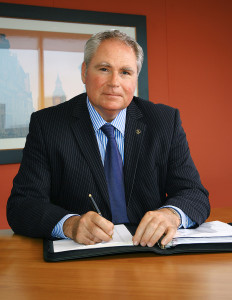
From: The Will Company
A General Power of Attorney (GPA), also know as an Ordinary Power of Attorney, is a type of Power of Attorney that will allow a person to appoint attorneys to make decisions on their behalf. These are not as widely used as a Lasting Power of Attorney (LPA) but do have certain uses and benefits.
What is a General Power of Attorney?
A GPA allows a donor to appoint attorneys to make financial decisions on their behalf. The document could be general, allowing the attorneys to make decisions on any of the donor’s property and finances, or it may be limited to only specific decisions. A sole attorney could be appointed or multiple. If multiple attorneys are named, they could act jointly, or jointly and severally depending on the wording of the GPA.
The document will last until the donor dies, loses mental capacity, until it is revoked or until it ends under the terms of the document.
Advantages of a General Power of Attorney
GPAs are very simple documents and often are no longer than one page long. All that is required is that the General Power of Attorney follows a form set out in Schedule 1 of the Power of Attorney Act 1971, or in a form to like effect but expressed as made under the Act.
The formalities to sign a GPA are also much simpler than an LPA. A GPA only needs to be signed by the donor and witnessed by a person who is not a party to the document. the attorneys do not need to sign, and it does not need to be registered with the Office of the Public Guardian (OPG) to be used.
Disadvantages of a General Power of Attorney
A GPA can only be used to manage property and financial affairs. It cannot be used to make health and welfare decisions.
If the donor loses mental capacity to make financial decisions, the attorney’s authority under the document will come to an end. GPAs are therefore not suitable for long term planning and clients wishing for their attorneys to be able to continue making decisions after the donor has lost capacity should consider LPAs instead.
Unlike an LPA, replacement attorneys cannot be appointed. It is however possible to give the attorneys the power to appoint a substitute for themselves, but this power must be expressly stated in the document itself and cannot be implied. In reality, replacement attorneys or a power to appoint a substitute are unlikely to be required. As the document can only be used whilst the donor has mental capacity, and are simple and east to create, if an attorney does not want to act or cannot act, the donor can make a new GPA.
GPAs are not as widely used as LPAs and therefore many banks and other financial bodies may not initially understand the document.
Uses of a General Power of Attorney
A common use for a GPA currently can be where a person is making an LPA for property and finance and may not need the attorneys to make decisions immediately, for example if the donor has mobility issues. Due to the registration delays at the OPG, a donor can be waiting many months to receive their registered LPA before they can be used by the attorneys. A GPA could be created alongside the LPA, with the intention that the attorneys could use the GPA to make urgent decisions who the LPA is being registered. Once the LPA is registered, the GPA could be revoked and the attorneys can start to use the LPA.
GPAs can be useful if a person will be absent for a long period of time, for example if they are planning on going abroad for an extended period. The GPA can be quickly put in place before the absence to allow attorneys to make decisions during that period of time, and the document can be revoked when the donor has returned.
A specific type of GPA can be used by personal representatives of an estate to delegate their functions to an attorney for a maximum period of 12 months. This is authorised by S25 Trustee Act 1925, and the GPA must follow a form set out in that section.
GPAs also have many specific uses in relation to a business but those are outside of the scope of this article.
Speak to Sussex Will Writers about organising your estate, Will and Lasting Power of Attorney.
Click to Call us on 01903 533681
or get in touch by emailing: info@sussexwillwriters.co.uk
 Sussex Will Writers
Sussex Will Writers
T: 01903 533681
M: 07734 744886
E: info@sussexwillwriters.co.uk
Could you do with some FREE, sound advice on:
- Writing a Will – What do I need and how much does it cost?
- Creating Lasting Powers of Attorney – If I was incapacitated who can act on my behalf?
- Property Protection Trusts – Can these really save Care Home Fees?
- Pre-Paid Funeral Plans – With so many to choose from how do I decide which plan is best?

There is so much confusion on these vital areas of estate planning, that sometimes just a chat with an expert in the field can clear up misunderstanding and set out the way ahead, without all the legal jargon.
Or complete the form below
Steve Worsfold
Affiliate Member of the Society of Will Writers
Advising on Wills/Trusts/Probate/Powers of Attorney

Mobile: 07734 744886
Office: 01903 533681
Email: steve@sussexwillwriters.co.uk
Website: www.sussexwillwriters.co.uk
Protecting What’s Precious to You,
Now and in the Future
Sussex Will Writers is proud to support Dementia Friends,
an initiative of The Alzheimers Society
Our business is certified ‘Safe to do business with’ and ‘Code compliant’
by the UK’s largest regulatory body for Will Writers, The Society of Will Writers.
Steve Worsfold has been an Affiliate Member of the Society for 15 years.



